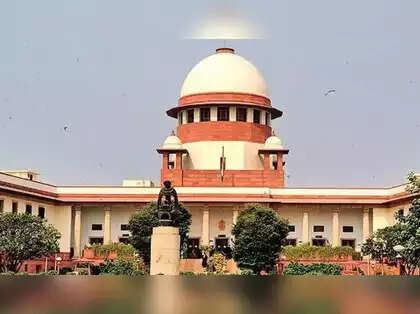Supreme Court Proposes Reforms for Uncontested Elections
The Supreme Court of India has recently addressed concerns regarding uncontested elections. A public interest litigation has challenged Section 53(2) of the Representation of the People Act. This section allows candidates to be declared elected without a poll if the number of candidates equals the number of seats. The petition argues that this deprives voters of their right to express dissatisfaction through the ‘None of the Above’ (NOTA) option.
Context of the Issue
The Supreme Court’s bench recently examined the implications of uncontested elections. The court brought into light the importance of ensuring that candidates secure a minimum percentage of votes to be declared elected. This proposal aims to enhance voter choice and prevent candidates from being elected without sufficient support.
About Section 53(2)
Section 53(2) of the Representation of the People Act states that if the number of candidates is equal to the number of seats, they are automatically declared elected. This provision has faced criticism for limiting voter participation and choice. The petition claims this contravenes the fundamental right to vote, as established by previous Supreme Court rulings.
The Role of NOTA
The NOTA option allows voters to reject all candidates. However, in uncontested elections, this choice is unavailable. The petitioner argues that this undermines the democratic process. The Supreme Court has acknowledged the potential need for reform to ensure that voters can express their preferences even when only one candidate is in the fray.
Arguments Presented
During the hearings, the petitioner brought into light hypothetical scenarios where a single candidate could be deemed undesirable. The argument suggests that without a minimum vote requirement, such candidates could exploit the system. The Election Commission countered this by stating that uncontested elections are rare, with only nine instances in the last 20 Lok Sabha elections.
Judicial Recommendations
Justice Kant proposed that a mechanism be established requiring candidates to obtain a certain percentage of votes to be declared elected. This approach is seen as a means to strengthen democracy and promote a healthy political culture. The court suggested that Parliament should consider this enabling provision to address potential future issues.
Future Implications
The Supreme Court’s recommendations could lead to changes in electoral processes. They aim to enhance voter engagement and ensure that elected representatives have substantial support. The court has urged the Union government to respond to these suggestions, indicating a possible shift in electoral law.
Month: Current Affairs - April, 2025
Category: Legal & Constitution Current Affairs








